Science fiction television programs have always depended on great protagonists to lead viewers through extraterrestrial worlds, future crises, and intricate ethical debates. Whether spearheading the fight against extraterrestrial tyrants or deciphering unexplained space anomalies, the protagonist tends to determine how emotionally involved fans become with a program. Not all science fiction programs get this aspect right, though.
While certain stories amaze with fantastic ideas and breathtaking imagery, they falter when the main character doesn't deliver. When the main character fails to impress because of weak writing, erratic characterization, or lackluster performances, the rest of the story can fail, no matter how spectacular the backdrop may be.
Here, we take a look at seven sci-fi shows in which the main character simply didn't cut it. Even with lofty premises and great casts, these shows were undermined by leads who couldn't hold the imagination of viewers or critics. From stiff performances to muddled motives and lost chances for development, these characters left viewers wanting more, but not in a positive sense. While supporting casts or visuals might have kept these shows afloat for a while, a poor lead tended to be the anchor weighing them down. Here's a glance at the sci-fi stars that just didn't cut it.
Disclaimer: This entire article is based on the writer's opinion. Readers' discretion is advised.
Sci-Fi shows where the main protagonist failed to impress the fans
1) Jim Shannon – Terra Nova
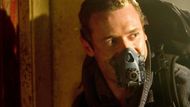
Even with its ambitious premise of time-traveling to prehistoric Earth, Terra Nova could not make its central character, Jim Shannon, ring true with audiences. Portrayed by Jason O'Mara, Shannon was more action-dad type than an engaging sci-fi hero. Audiences scoffed at his narrow emotional palette and basic motives, particularly amidst such a vivid environment of survival, rebellion, and dinosaur threats. Rather than developing with the stakes, his character remained two-dimensional, getting eclipsed by more interesting side characters and the visual effects of the show. In the end, the generic lead was one of many reasons the show failed to catch hold long-term.
2) Black Bolt – Inhumans
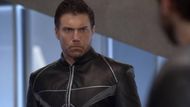
Marvel's Inhumans was an infrequent failure, and Black Bolt, its main character, took much of the blame. Anson Mount played the mute king, yet the character's silence necessitated subtle conveyance of something the script and direction failed to provide, according to fans. Black Bolt is an intriguing character within Marvel history, but the show's terrible dialogue, poor pacing, and cringeworthy character moments numbed his presence. Rather than commanding and regal, he tended to come across as passive and detached. Couple that with a subpar supporting cast and lack of chemistry, and it's no surprise that audiences couldn't relate to this abused protagonist or the show in general.
3. Dr. Alan Farragut – Helix
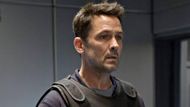
Dr. Alan Farragut, the lead virologist at Helix, was supposed to anchor the show's creepy biotech thriller. But Billy Campbell's performance felt emotionally wooden, making it difficult for audiences to connect with him. Although the Arctic virus epidemic plot was suspenseful, Farragut did not have the sense of urgency and nuance one would want from someone in his position. Fans noted that supporting characters such as Julia and Hatake were more vibrant and interesting. With an imbalanced combination of science mumbo-jumbo and interpersonal drama, Alan never really became a hero one could care about, diluting the show's emotional and storytelling heart.
4. Karl D’Branin – Nightflyers
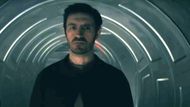
In Syfy's Nightflyers, Karl D'Branin commands a space mission to make contact with extraterrestrial life, but his emotional angst and unclear motivations weigh down the story. Portrayed by Eoin Macken, D'Branin felt more sorrowful than charismatic, struggling to bear a series full of existential terror and sci-fi aspiration. His internal sorrow regularly trumped his outward mission, leaving him to feel more like a brooding witness than an assertive leader. With scant character development episode to episode, it was tough for fans to cheer him on. Even with interesting source material by George R.R. Martin, D'Branin was never the strong protagonist the series required.
5. Niko Breckinridge – Another Life
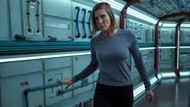
Katee Sackhoff's Niko Breckinridge should have had it all: a privileged space mission, extraterrestrial enigmas, and a history of science fiction roles. But viewers of Another Life were disappointed by a character who felt erratic and remote too often. Niko's command was fraught with questionable moves, emotional rants, and illogical rationalizations, more frustrating than encouraging. While Sackhoff brought the intensity, the script didn't fully flesh out Niko's nuance, resulting in a character viewers couldn't empathize with or admire. Rather than demanding pity or respect, Niko existed in a loop of self-torment and apology, which bogged down the show's narrative energy.
6. Charlie Matheson – Revolution

As Revolution's star, Charlie Matheson should've had the emotional and thematic resonance of a world without power. But as played by Tracy Spiridakos, Charlie was too bland and reactive to sustain audience investment. Her critics panned her as lacking emotional depth, stilted in dialogue, and on a predictable arc. Although the concept of a Revolution in a world without electricity was intriguing, Charlie never became the compelling survivor-leader the premise threatened. Indeed, audience members often opted for secondary characters such as Miles or Monroe, whose moral ambiguities lent depth. Charlie stayed infuriatingly one-dimensional, and in a show about the strength of the human spirit, she just didn't shine bright enough.
7. Erica Evans – V (2009 Reboot)
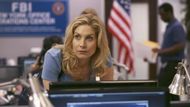
In V's ABC revival, Erica Evans, played by Elizabeth Mitchell, was front and center as a staid FBI agent who stumbles upon an alien invasion. Whereas the original '80s show relied on suspense and intrigue with its characters, this installment also failed because of a fireless main character. Erica's stilted delivery and lack of a consistent sense of urgency did not jibe with the show's growing stakes. She too often felt like a plot device instead of a character with complex fears or flaws. Although Mitchell had genre credentials, viewers felt Erica's journey was too conservative and linear. In the end, the series tanked, and so did its star, leaving little lasting impact.
